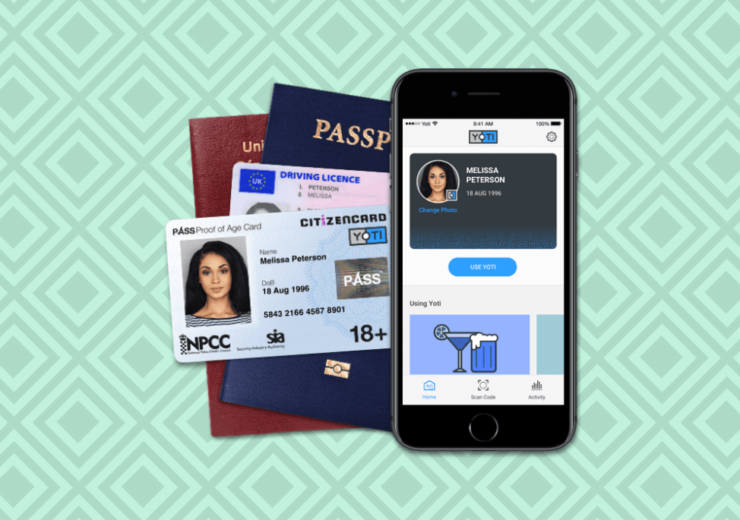New uses for digital IDs promise to make boarding planes quicker, remove the need for ID checks at self-service supermarkets and aid recruiters

How can the new digital IDs be used? (Credit: Yoti)
Digital IDs, such as Yoti and the UK government’s struggling Verify project, are increasingly being featured in the press, but what are their use cases?
The digital verification technology takes advantage of advancements in mobile security, such as biometric and facial recognition checks, to make secure identification apps.
They promise to replace the need for physical documents like passports and driving licences for people drinking in a bar or wanting to buy age-restricted products online.
However, this is not all the new apps are capable of doing and digital ID companies are coming up with several innovative uses to keep users safe online and speed up processes that normally require ID.
What can a digital ID be used for?
Seamless check-in at airports
Digital ID was trialled as a method of checking into airport terminals and speeding up the boarding process.
The system works by sending a copy of the boarding pass alongside your digital ID in advance of your arrival.
Then, when arriving at a check-in desk, all that is required is a scan of the boarding pass and a facial recognition check for the airport systems to recognise the traveller, removing the need for several passport checks before boarding.
Recruitment
One of the business use cases for digital ID is in the area of recruitment.
A YouGov poll found that one in ten Brits admitted to lying on their CV, with the most common area for embellishment being education and qualifications.
Yoti is trialling the ability for users to attach documents to verify claims made on a CV or application, such as accreditation and qualifications.
Julie Dawson, director of regulatory and policy for Yoti, says: “One of the leading teaching recruiters spoke to us and said it would be really useful to know if someone has a clean criminal record and first aid qualifications for instance.
“Similarly, there was someone from the London Ambulance Service who was found to not have the qualifications they were meant to despite passing screening tests.
“To know that the individual who arrived at the interview has the right accreditation is pretty important.”
Using a digital ID to buy products online
One of the most obvious uses of digital IDs is for purchasing age-restricted products online.
Alcohol orders made online are only able to check the age of the person ordering once the delivery has been made.
Use of a digital ID would allow the age to be verified before the transaction is made.
Yoti has trialled the technology on the Jägermeister website, at self-service checkouts, as well as a bar that allowed users over the age of 18 to pour their own pints.
The company claims that ID checks account for 50% of interventions at self-checkouts.
By scanning a QR code with the Yoti app before paying, a user could prove their age without the need for a shop assistant.
Making online interactions safer
Digital ID also has use cases for proving that people are who they say they are online.
From catfishes on dating apps to online trolls, it can be difficult to know whether the person you are speaking to online is who they claim to be.
Yoti believes its app offers a solution to the problem and allows users to share some details about themselves in order to improve their trust rating on their account.
The company has worked with online marketplaces to create verified accounts for sellers and also with Indian dating site TrulyMadly to cut out fraudulent online daters.
Ms Dawson says: “Many users were worried about catfishing and found that many people were often not the age or gender they were claiming to be.
“Users can now add a Yoti link to get the maximum number of trust points before they get swiped left or right on the platform.”
Protecting children online

Ms Dawson says Yoti has come up with technology solutions to help protect children online.
The company has worked with Yubo, a social media platform for children used by 20 million people, to create age estimation technology.
It works by a user looking into the camera to estimate the age of the user – the picture will then be automatically deleted.
Ms Dawson adds: “Yubo users previously had to self-certify that that they were between the ages of 13 and 17 – the company wanted to know for safeguarding whether the age people typed in was accurate.
“They found instances where it is an eight-year-old logging on and others where it is a 32-year-old, neither of which is great.
“Yoti has now performed over five million age estimations and the technology is now used as part of their safeguarding.”


